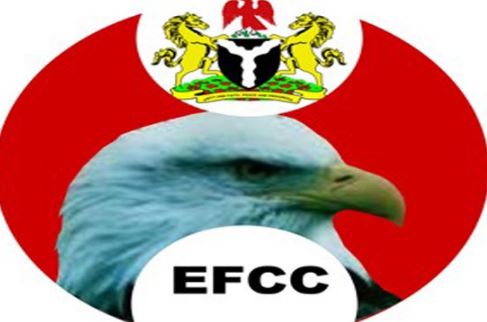Economic and Financial Crimes Commission, EFCC, on September 25 filed an appeal at the Sokoto Division of the Court of Appeal, challenging the ruling of the Sokoto State High Court in respect of pardon granted by the Governor of Sokoto State, Aminu Tambuwal, to five persons who were charged for fraud alongside a former governor of the state, Attahiru Bafarawa. Mr. Tambuwal, a former Speaker of the House of Representatives, is a member of Nigeria’s ruling All Progressives Congress, whose major mantra is the fight against corruption.
The Sokoto State High Court presided by Justice Bello Abbas had on June 29 discharged Tukur Alkali, Bello Isah, Isah Sadiq, Habibu Halilu Modachi and Muhammadu Dingyadi from further criminal proceedings based on a pardon granted to them by Mr. Tambuwal. Mr. Tambuwal granted the pardon while the officials were still being tried for the alleged fraud. However, being dissatisfied with the ruling, the EFCC took the matter to the court of appeal seeking an order setting aside the judgment of the trial court on four grounds.
The appellant argued that section 36 (10) of the Constitution which provides that “no person who shows that he has been pardoned for a criminal offence shall again be tried of that offence” is talking about pardon after conviction and in this case, the respondents were undergoing trial when the pardon was granted. The appellant further argued that, pardon is a grace by the appropriate authority, which mitigates or obliterates the punishment the law demands for the offence and restores the rights and privileges forfeited on account of the offence which the accused was convicted of.
The appellant further argued that the trial judge erred in law by relying on section 212 (1)(a) of the 1999 Constitution of the Federal Government of Nigeria (as amended) in discharging the accused person, adding that section 212 (1)(a) of 1999 Constitution is inapplicable in the circumstances of this case. According to the appellant, a governor of a state can only exercise his prerogative of mercy to a person who had been convicted by a court of competent jurisdiction. It contended that the trial judge erred in law by allowing the Governor of Sokoto State to not only interfere or discontinue with criminal proceedings but one undertaken by the agent of the Federal Government of Nigeria. The EFCC is a creation of the National Assembly, with powers to investigate and prosecute persons suspected to have committed an economic or financial crime. As agency of the federal government, the commission is not under the regulation or direction of a state governor in the discharge of its duties and a state governor is not entitled to interfere with the functions of the EFCC.
“Nolle Prosequi” by the appropriate Attorney General is the only permissible procedure to terminate or discontinue criminal proceeding against any person.
“A state governor is not empowered to discontinue a criminal proceeding under the guise of prerogative of mercy”, the EFCC said.
Source: Premium Times



